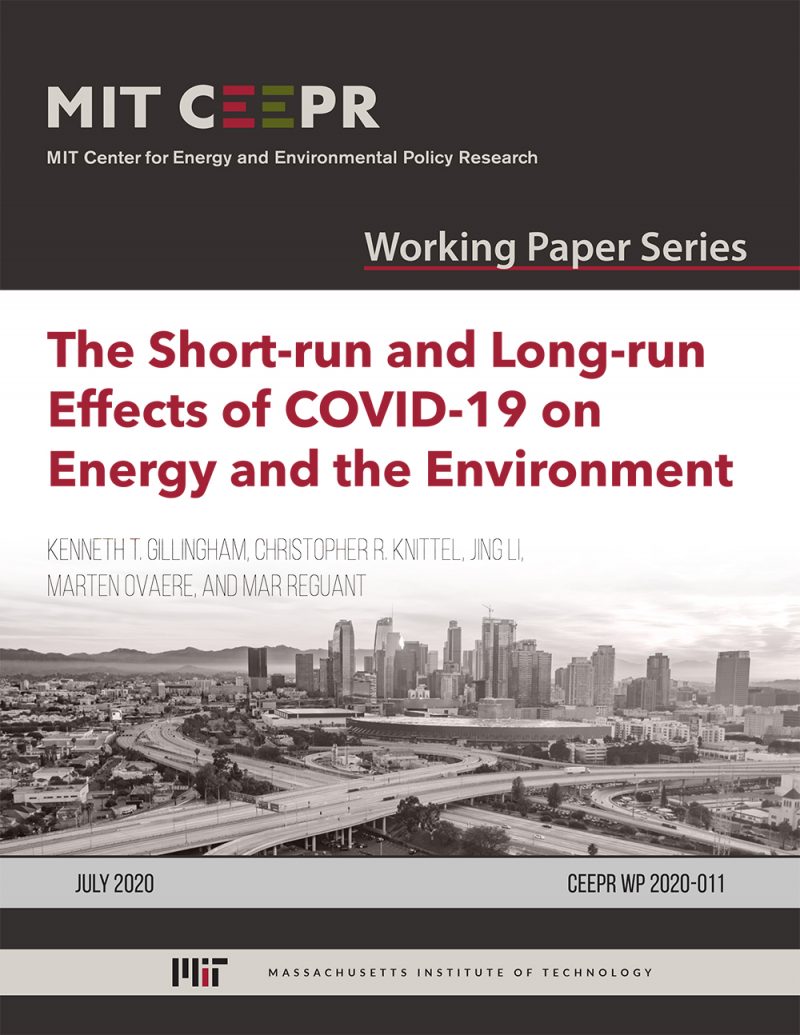The Short-run and Long-run Effects of COVID-19 on Energy and the Environment
Kenneth T. Gillingham, Christopher R. Knittel, Jing Li, Marten Ovaere, and Mar Reguant
July 2020
In this commentary, we explore how the short-run effects of Covid-19 in reducing CO2 and local air pollutant emissions can easily be outweighed by the long-run effects of a slowing of the clean energy innovation. We show that in the short run, Covid-19 has reduced energy consumption for jet fuel and gasoline dramatically, by 50% and 30% respectively, while overall electricity demand has declined by less than 10%. CO2 emissions have declined by 15%, while local air pollutants have declined as well, saving about 200 lives per month. However, if there is a slow recovery and deep impact on long-run innovation in clean energy, the short-run emission reductions will have long-run impacts, including an additional 2,500 MMT CO2 and 40 deaths per month on average from 2020 to 2035. Even pushing back renewable electricity generation investments by one year would outweigh the emission reductions and avoided deaths from March to June of 2020. We emphasize that the policy response will determine how Covid-19 ultimately influences the future path of emissions. A quick stabilization of the economy and action to expedite permitting and invest in clean energy can make all the difference.



